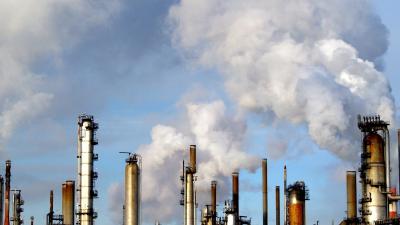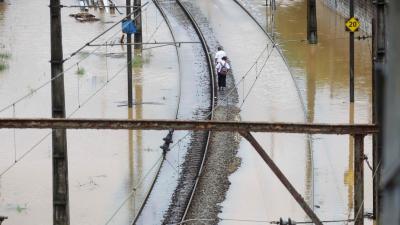According to Lloyd’s Register Foundation, people in Alberta – the leading producer of fossil fuels in the country – are less likely to view climate change as a threat compared to the rest of Canada. It follows the Foundation’s latest analysis of their World Risk Poll, powered by Gallup, which surveyed 125,000 people across 121 countries.
The findings, detailed in the organisation’s latest Focus On report, Fossil fuel dependence and perceptions of climate change, point to a global phenomenon, where fossil fuel reliance correlates with lower levels of concern about climate change, especially in producing countries such as the United Arab Emirates and Saudi Arabia, but also Norway and Canada.
When asked whether they think climate change will be a threat to people in their country in the next 20 years, the majority of Canadians (61%) viewed it as a ‘very serious threat’. Yet the report highlights some considerable provincial differences within the country. Less than four in ten (39%) respondents in Alberta believe climate change to be ‘a very serious threat’ – a stark contrast with other regions such as Newfoundland and Labrador (76%), and Ontario (67%), the country’s largest producer of nuclear energy.
The report comes at a turning point for Canada’s energy landscape, as the national government presented a sustainable job bill to help prepare workers for a transition to a lower carbon economy. The bill, drafted in response to emission reduction and net zero targets, was met with fierce opposition in Alberta and criticised by newly elected premier Danielle Smith as one she claimed would ‘significantly harm our provincial economy.’
Tim Slingsby, Director of Skills and Education at Lloyd’s Register Foundation, said: “We know many people fear the loss of economic prosperity or employment, especially in regions economically reliant on fossil fuels such as Alberta – and as a result, may discount or downplay the threat of climate change.
“The planet is at breaking point, and it is therefore crucial that leaders work together to provide clear and consistent messaging when discussing the severe safety implications of climate change. Improving the recognition among Alberta residents of the threat posed by climate change, especially following the recent wildfires, is an important step.”
Lloyd’s Register Foundation is now calling on governments and stakeholders within the fossil fuel industry to work together on workforce transition plans. The shipping industry is providing an example for how this can be done, led by the Maritime Just Transition Task Force which, with funding from Lloyd’s Register Foundation, is using a people-centred approach to transition to a zero-carbon shipping industry.
Tim continues: “To achieve a just transition, it’s not enough to simply cut down fossil fuel production. We must also come up with a clear, people-centred reskilling plan, focusing on transferrable skills and long-term sustainability – one that doesn’t leave any workers behind. This will require collaborative thinking and communication from both national and local governments, as well as industry stakeholders across the board.
“Crucially, if governments are proactive in addressing transition planning, it will help ensure people’s economic worries are tackled while providing a better platform to be clear and consistent with messaging about the threat of climate change. The maritime industry, which has undergone more energy transitions than any other, is showing us there is a way – now we need to take action.”
Jebi Rahman, Head of Global Implementation, Governments and Policy at Climate Group, said: “We've had all the warnings we need when it comes to the impacts of climate change - now it's time to act. That means phasing out fossil fuel extraction and investing in sustainable energy sources to meet demand. Whether it's extreme floods in Italy or record heatwaves in India, the message couldn't be clearer: climate change is here and we need to adapt to a new normal. This is true for every level of government, from cities to states, regions and countries. We simply can't continue to turn a blind eye and pretend there can be business as usual.”



